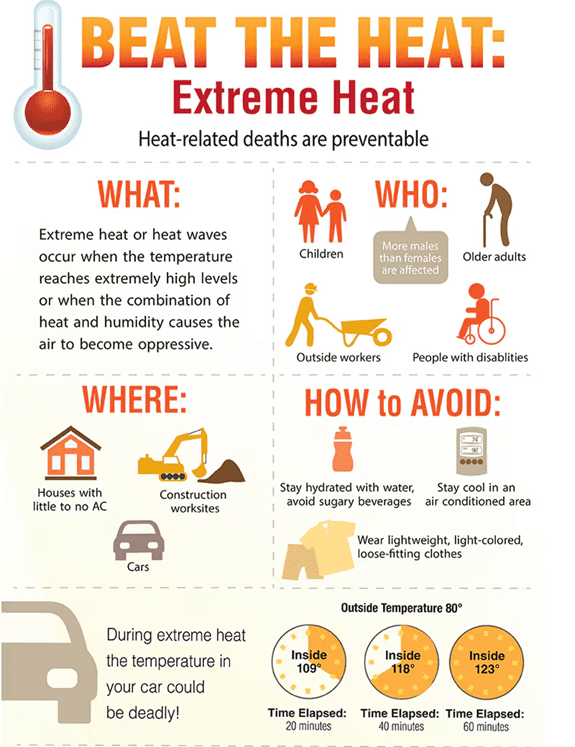Warm weather is already being felt around the state. In Nevada, it doesn’t take long for the weather to become hot! There are several ways to make your days and nights more comfortable while indoors. Swamp coolers are pretty effective in dry climates, air is pulled through wet pads and cooled, the cooled air is circulated into the home. Air conditioning is a wonderful thing. Set the temperature you desire, turn the unit on, and bask in the cool air.
What about outside when the weather is hot, especially during the daytime when the sun is beating down on us? Hot weather is not just an annoyance, it can be harmful or deadly if precautions are not taken. Let’s talk about Heat Related Emergencies.
We are going to go by what the experts at CDC have to say. The CDC addresses five heat related illnesses:
Heat stroke is a TRUE MEDICAL EMERGENCY!!
Extreme heat is defined as summertime temperatures that are much hotter and/or humid than average. Because some places are hotter than others, this depends on what’s considered average for a particular location at that time of year. Humid and muggy conditions can make it seem hotter than it really is.
Know the signs and symptoms of heat-related illnesses.
Heat-related illnesses, like heat exhaustion or heat stroke, happen when the body is not able to properly cool itself. While the body normally cools itself by sweating, during extreme heat, this might not be enough. In these cases, a person's body temperature rises faster than it can cool itself down. This can cause damage to the brain and other vital organs.
Some factors that might increase your risk of developing a heat-related illness include:
